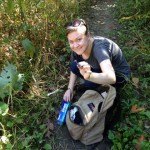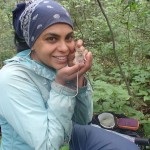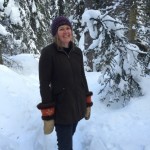Specific areas of ongoing research
Effects of forest harvesting on biodiversity in boreal and temperate forest ecosystems
Research in Ontario’s Boreal and Great Lakes/St. Lawrence forests is examining the effects of logging on animal and plant communities. Field‑based biodiversity studies are focusing on small mammals, insects, birds, and understory plants. Particular interests include: 1) the ways in which landscape-level ecological processes scale up to create stand‑level change, especially through the interplay of island biogeography and edge processes, 2) the fauna of woody debris (including downed logs and snags), 3) the canopy fauna, and 4) use of remotely sensed data to characterize anthropogenic changes in landscapes especially with regard to changes in forest successional trajectories and stand age distributions.
Effects of internal and external forest fragmentation on tropical biodiversity
Dr. Malcolm’s research in the tropics has included studies of: 1) ecological effects of external forest fragmentation (central Amazon), 2) ecological effects of internal forest fragmentation during selective logging (Central African Republic and south-eastern Amazon), 3) ecology of tropical (especially canopy) small mammals, and 4) ecological and evolutionary roles of Amazonian rivers. Current research is focusing on several topics related to the ecological impacts of selective logging and harvesting of non‑timber forest products, including development and testing of theoretical edge models, animal and plant community responses to logging, ecology of tree and small mammal communities, and uses of remotely sensed data to characterize tropical habitats.
Impacts of global warming on biodiversity
Research projects have included:
- Development of climate “envelope” models to predict the future spatial distributions of vertebrate species in southern Africa.
- Studies of the vulnerability of Canadian and U.S. protected areas to global warming.
- Development of techniques to assess the vulnerability of wildlife populations to global warming.
- Climate envelope modelling to assess species distributional changes in Canada and potential future migration rates.
- Modelling the future responses of tree communities to global warming (via climate envelope and migration modelling).
- The design of future landscapes to facilitate species migration.
Current graduate students
MScF Students
- Melanie Croydon-Sugarman. Effects of experimental downed wood removal on boreal fungal populations (co‑supervised with J-M. Moncalvo, Royal Ontario Museum).

PhD Students
- Kateryna Kostyukova. Understanding spatial variation in Great Lakes – St. Lawrence small mammal populations and relationships with forest structure and dynamics (co‑supervised with S. Thomas).
- Anjali Karve. Effects of experimental downed wood removal on the abundances and ecology of boreal small mammals.

- Rosanne Van Schie. Ecosystem services in Wolf Lake First Nation traditional lands.
